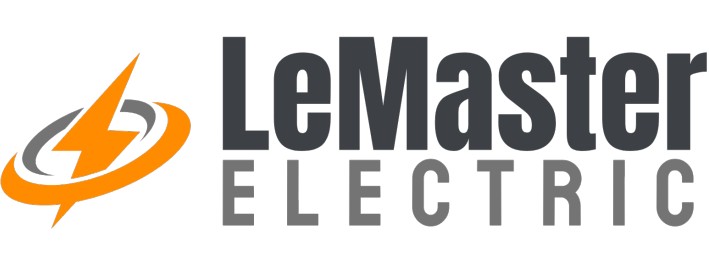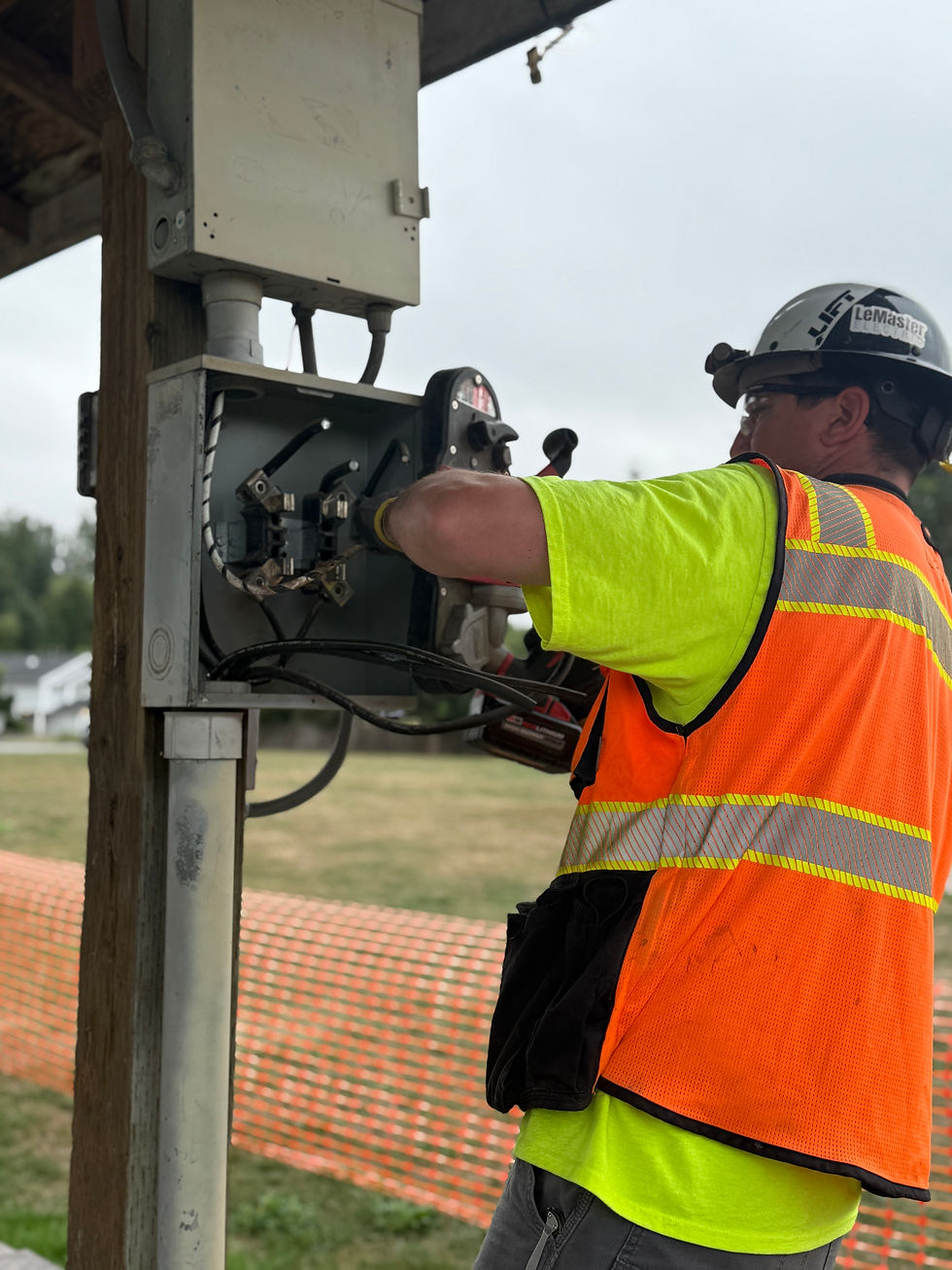EV Infrastructure
EV Infrastructure on Commercial Sites: What Contractors and Property Managers Must Know

Introduction
Electric vehicles (EVs) are no longer a trend — they’re here to stay. With more tenants, employees, and customers driving electric, commercial property owners and managers are under pressure to add EV charging stations.
But here’s the reality: installing EV chargers is not as simple as adding another outlet. It requires careful planning, special permits, and a strong understanding of both the National Electrical Code (NEC) and Washington’s rules.
At LeMaster Electric, we specialize in helping businesses design and build EV infrastructure that’s safe, code-compliant, and ready for the future. Here’s what you need to know.
EV Chargers Are Not Just Outlets
The Misunderstanding: Many people think of EV chargers like a heavy-duty appliance you just plug in. In truth, they are dedicated electrical systems that often draw as much power as an entire office floor.
Real-Life Scenario: A shopping center wants to add six Level 2 chargers in its parking lot. Each charger requires a 240-volt circuit, and together they add up to the power demand of a small grocery store. The contractor must:
Upgrade the electrical service to handle the load.
Work with the utility company to confirm capacity.
Install dedicated circuits, breakers, and disconnect switches.
Why It Matters: If these steps aren’t followed, the building risks tripping breakers, damaging equipment, or failing inspections.
Permits and Accessibility Are Mandatory
The Rule: Washington requires specific EV infrastructure permits. In addition, chargers must be accessible under ADA (Americans with Disabilities Act) standards.
Real-Life Scenario: An office park adds chargers but doesn’t plan for ADA spaces. The inspector fails the installation because not enough chargers are usable by drivers with mobility impairments. The contractor must:
Relocate equipment.
Re-pour concrete pads.
Reschedule inspections.
Why It Matters: A mistake in planning can mean thousands in rework and weeks of delay.
Safety First: High Voltage and Emergency Access
The Risk: EV chargers involve high-voltage systems that require clear labeling and emergency shut-offs.
Real-Life Scenario: A warehouse installs DC fast chargers for fleet vehicles. The inspector requires:
Clearly marked disconnect switches so firefighters can shut the system down.
Space around the chargers for safe maintenance access.
Bonding and grounding of metal parts to prevent shocks.
Why It Matters: Without these safeguards, a responder could be seriously injured in an emergency.
Planning for the Future: Scalability
The Challenge: Many property managers only plan for the chargers they need today. But as EV adoption grows, tenants and employees will expect more.
Real-Life Scenario: A commercial office installs four chargers without planning extra conduit. Two years later, they need eight more chargers. Instead of pulling additional wiring from the start, the contractor now has to trench the parking lot again — doubling the cost.
Why It Matters: Planning extra conduit and panel space upfront saves money in the long run.
How Contractors and Property Managers Should Prepare
Engage Early with the Utility: Confirm whether the grid can handle the extra load before installing chargers.
Budget for Infrastructure, Not Just Chargers: The electrical work behind the scenes often costs more than the chargers themselves.
Plan for Accessibility: Build ADA-compliant spaces into the layout from day one.
Think Long-Term: Install conduit and reserve panel space for future expansion.
Why Work with LeMaster Electric?
At LeMaster Electric, we understand both the technical requirements and the policy framework behind EV infrastructure. We work with general contractors, property managers, and developers to:
Design EV systems that pass inspection the first time.
Coordinate with utilities and inspectors to avoid delays.
Build scalable solutions that grow with future demand.
Our goal is simple: to make sure your EV project is safe, compliant, and built to last.
Conclusion
EV infrastructure is now a must-have for commercial properties, but it comes with real risks and responsibilities. From high-voltage safety requirements to permit and accessibility rules, every step must be carefully planned.
By partnering with LeMaster Electric, you can trust that your project will meet all code requirements, keep your tenants happy, and be ready for the future of transportation.
Recent posts
Aging Electrical Infrastructure: Risks Emerging in Mid-Life Commercial Buildings
Many commercial buildings constructed between the 1980s and early 2000s are now entering a mid-life phase for their electrical infrastructure. While these systems may still be operational, the conditions under which they were designed often no longer reflect current usage.
Emerging Challenges in Temporary Power Safety on Construction Sites
Temporary power systems on construction sites are carrying more responsibility than ever before. What was once limited to basic lighting and hand tools now routinely supports heaters, lifts, temporary HVAC, testing equipment, and high-demand specialty trades.

%20(1).webp)


